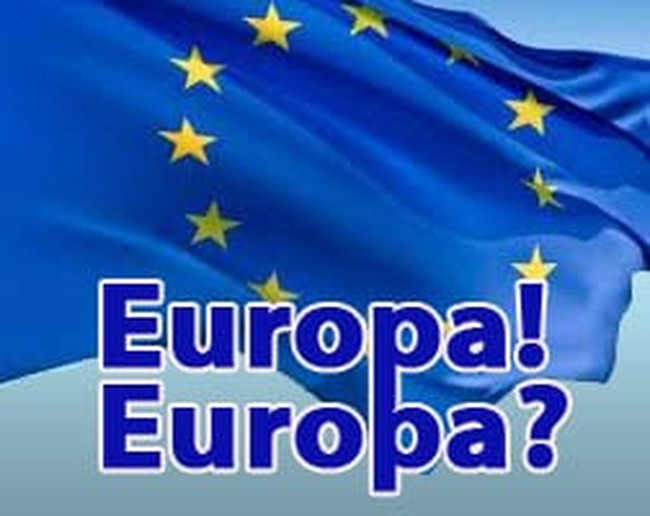
Ever since taking office in 2004, Spanish Prime Minister José Luis Rodríguez Zapatero has worked overtime to craft his own public persona as a “convinced pacifist.” His first official act as pacifist-in-chief was, famously, to withdraw Spanish troops from Iraq. That decision was not only wildly popular with Spanish voters, but it also cemented Zapatero’s pacifist credentials on the world stage.
Just a few months later, facing a barrage of criticism from non-pacifists at home and abroad that his Iraq policy amounted to appeasing Islamic terrorists, Zapatero reluctantly deployed extra troops to the NATO mission in Afghanistan. But just in case that deployment might cast doubt on his commitment to pacifistic ideals, Zapatero dictated strict rules of engagement that forbid Spanish troops in Afghanistan from using lethal force, a “caveat” that ever since has essentially rendered useless their presence in the country.
Later that same year, in his first speech to the United Nations General Assembly, Zapatero shed some light on his pacifist vision for achieving world peace. Using the flowery post-modern verbiage for which he is now famous, Zapatero declared: “Culture is always peace.” In case that message was not sufficiently clear, Zapatero followed up by telling Time magazine that “sexual equality is a lot more effective against terrorism than military strength.” He then went on to argue that Islamic terrorists are simply misunderstood idealists and that any differences the West may have with them should be worked out in multilateral group therapy sessions supervised by UN psychotherapists.
Zapatero has also been careful to appoint only pacifists as Spanish ministers of defense. Zapatero’s first defense minister, the controversial José Bono Martínez, proclaimed: “I am a minister of defense and I would rather be killed than to kill.” He then issued orders prohibiting Spanish troops in Afghanistan from harming Taliban fighters.
Zapatero’s second minister of defense, José Antonio Alonso Suárez, believed it was his job to demilitarize the Spanish military and to turn the newly disarmed forces into an NGO-like humanitarian organization instead. To achieve his vision, he purged from the senior ranks of the Spanish military those officers who refused to abandon the silly belief that the main mission of the military should be to defend Spanish sovereignty.
During her swearing-in ceremony, Zapatero’s third (and current) defense minister, Carme Chacón, proudly proclaimed: “I am a pacifist, as are the armies of the 21st century.” Again: “I am a pacifist woman, and the Army is also pacifist.” Her biggest achievement as Spain’s pacifism minister has been to unilaterally withdraw Spanish troops from the NATO-led KFOR peacekeeping mission in Kosovo. “Mission accomplished. It’s time to go home,” she declared, cementing Spain’s image as an unreliable military partner.
Fast-forward to 2011 and the crisis in Libya. Zapatero the ardent pacifist has suddenly been transformed chameleon-like into Zapatero the enthusiastic warrior. Far from bashing the Americans for attacking a tin pot dictator in the Middle East, Zapatero has redefined braggadocio by dispatching four Spanish F-18 fighter jets to Libya. Foes and allies alike have been transfixed by Zapatero’s “definitive metamorphosis.”
What gives!? Zapatero’s sudden ideological transformation comes at a time when Spain is mired in the worst recession in its modern history. The country has a jobless rate of more than 20 percent, the highest in the industrialized world. With nearly five million Spaniards on the dole, a spiralling national debt, and a Socialist government with no viable strategy to avoid an economic meltdown, many analysts believe Spain is headed for a Greek-style bankruptcy.
Not surprisingly, newspaper commentators are saying there is nothing like a war in Libya to take Spanish minds off how bad things are at home. And there is nothing like a war to reinvent Zapatero’s reputation as an incompetent economic crisis manager to zealous defender of democracy in Libya.
To be sure, European duplicity on the use of military force extends far beyond Spain.
Consider France, for example. French President Nicolas Sarkozy, who has consistently refused to send more troops to Afghanistan, has been quick to take the credit for the intervention in Libya. He says France has “decided to assume its role, its role before history” in stopping strongman Muammar Gaddafi’s “killing spree” against people whose only crime was to seek to “liberate themselves from servitude.”
Sarkozy’s newfound concern for Libyan democracy contrasts sharply from only three years ago, when Sarkozy welcomed Gaddafi with open arms during an extravagant five-day state visit to France. On that December 2007 occasion, Gaddafi breezed into Paris with an entourage of 400 servants, five airplanes, a camel, and 30 female virgin bodyguards, and then proceeded to pitch his tent just across the street from the Elysée Palace.
Sarkozy’s sudden zeal for the cause of democracy in Libya comes as his popularity is at record lows just thirteen months before the first round of the 2012 presidential election. With polls showing that Sarkozy is the least popular president since the founding of the Fifth Republic in 1958, he is betting that French voters will appreciate his efforts in Libya to place France at the center of the world stage and reinforce what Charles de Gaulle once famously called “a certain idea of France” as a nation of exceptional destiny.
In any case, Sarkozy’s main rival is not Gaddafi, but rather Marine Le Pen, the charismatic new leader of the far-right National Front party in France. A new opinion poll published by the Le Parisien newspaper on March 8 has Le Pen, who took over from her father, Jean-Marie Le Pen, in January, winning the first round of next year’s presidential election.
Le Pen, who appeals to middle class voters, is riding high on voter dissatisfaction over the failure of the mainstream parties to address the problem of Muslim immigration. Since taking her post three months ago, Le Pen has single-handedly catapulted the twin issues of Muslim immigration and French national identity to the top of the French political agenda, and in recent weeks, Le Pen has been a permanent fixture on French prime-time television to discuss the threat to France of a wave of immigrants from Libya.
Doing his part, Gaddafi already has pledged that Europe will be “invaded” by an army of African immigrants. In an interview with the French newspaper Journal du Dimanche on March 6, Gaddafi warned: “You will have immigration. Thousands of people from Libya will invade Europe. There will be no one to stop them any more.”
Earlier, during a visit to Italy in August 2010, Gaddafi demanded €5 billion ($7 billion) a year from the European Union to stop illegal immigration which “threatens to turn Europe black.” At the time, Gaddafi asked: “What will be the reaction of the white Christian Europeans to this mass of hungry, uneducated Africans? We don’t know if Europe will remain an advanced and cohesive continent or if it will be destroyed by this barbarian invasion. We have to imagine that this could happen, but before it does we need to work together.”
Since the revolt in Tunisia in January, nearly 15,000 boat people (more than the total for all of 2010) have arrived on the tiny Italian island of Lampedusa, a 20-square-kilometer island that traditionally has been a major gateway for illegal immigration into the European Union. The panicked French minister for European affairs, Laurent Wauquiez, recently warned that up to 300,000 illegal immigrants could arrive in the European Union from North Africa during 2011. The influx of immigrants from Libya is a “real risk for Europe that must not be underestimated,” he said.
Threatened by Le Pen’s rising popularity, and in urgent need of a political boost, Sarkozy is now using the Libya intervention both to play the role of the respected statesman on the international stage and to address French concerns over mass immigration from North Africa. But during a March 21 interview with France 24, Le Pen dismissed Sarkozy as “a French president who is no longer running anything, who is governing on impulse or emotion, depending on the circumstances.”
Quite apart from the ongoing debate over whether the military intervention in Libya is wise or unwise, legitimate or illegitimate, or if it ultimately will succeed or fail, the European about-face on the use of military force has confirmed the sham that is post-modern European morality, where “cherished” principles are tossed to the wind whenever they are not convenient.
The antiwar idealism of Zapatero and other European fellow travellers is, in its essence, a neo-pacifist reality-evading political façade that Spain and other European governments have hid behind in recent years to avoid military alliance responsibilities in Afghanistan, Iraq, and elsewhere. And in an effort to conceal this duplicity, European post-modern pacifism has served as a high-minded, anti-American bully pulpit from which to bash the United States and Israel for refusing to embrace ephemeral concepts like “soft power.”
Boy George, a poster child for European post-modern popular culture, once described the chameleon-like reality of contemporary European morality: “I’m a man without conviction. I’m a man who doesn’t know.”









Join the conversation as a VIP Member